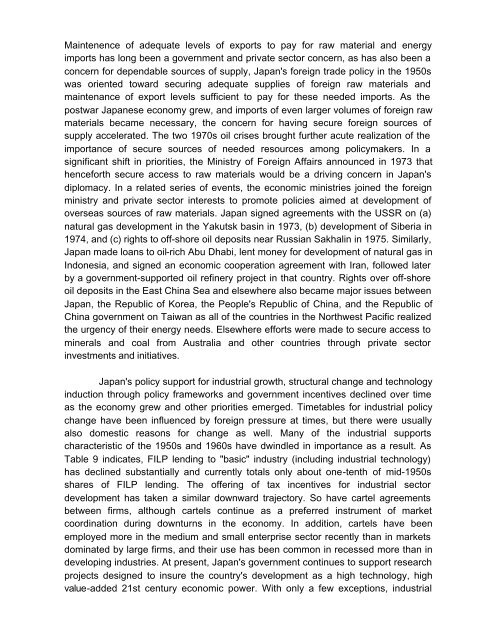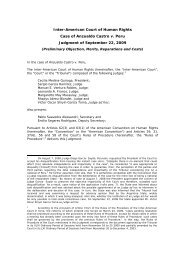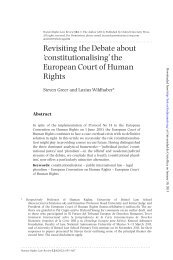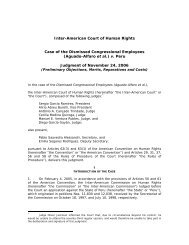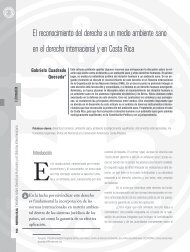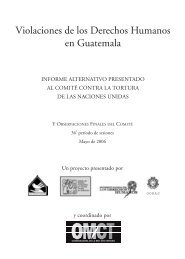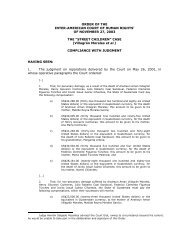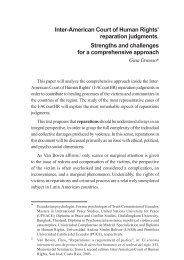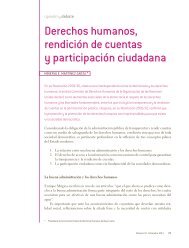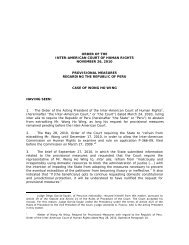The Political Economy of Japan Bradley M. RICHARDSON
The Political Economy of Japan Bradley M. RICHARDSON
The Political Economy of Japan Bradley M. RICHARDSON
- No tags were found...
You also want an ePaper? Increase the reach of your titles
YUMPU automatically turns print PDFs into web optimized ePapers that Google loves.
Maintenence <strong>of</strong> adequate levels <strong>of</strong> exports to pay for raw material and energyimports has long been a government and private sector concern, as has also been aconcern for dependable sources <strong>of</strong> supply, <strong>Japan</strong>'s foreign trade policy in the 1950swas oriented toward securing adequate supplies <strong>of</strong> foreign raw materials andmaintenance <strong>of</strong> export levels sufficient to pay for these needed imports. As thepostwar <strong>Japan</strong>ese economy grew, and imports <strong>of</strong> even larger volumes <strong>of</strong> foreign rawmaterials became necessary, the concern for having secure foreign sources <strong>of</strong>supply accelerated. <strong>The</strong> two 1970s oil crises brought further acute realization <strong>of</strong> theimportance <strong>of</strong> secure sources <strong>of</strong> needed resources among policymakers. In asignificant shift in priorities, the Ministry <strong>of</strong> Foreign Affairs announced in 1973 thathenceforth secure access to raw materials would be a driving concern in <strong>Japan</strong>'sdiplomacy. In a related series <strong>of</strong> events, the economic ministries joined the foreignministry and private sector interests to promote policies aimed at development <strong>of</strong>overseas sources <strong>of</strong> raw materials. <strong>Japan</strong> signed agreements with the USSR on (a)natural gas development in the Yakutsk basin in 1973, (b) development <strong>of</strong> Siberia in1974, and (c) rights to <strong>of</strong>f-shore oil deposits near Russian Sakhalin in 1975. Similarly,<strong>Japan</strong> made loans to oil-rich Abu Dhabi, lent money for development <strong>of</strong> natural gas inIndonesia, and signed an economic cooperation agreement with Iran, followed laterby a government-supported oil refinery project in that country. Rights over <strong>of</strong>f-shoreoil deposits in the East China Sea and elsewhere also became major issues between<strong>Japan</strong>, the Republic <strong>of</strong> Korea, the People's Republic <strong>of</strong> China, and the Republic <strong>of</strong>China government on Taiwan as all <strong>of</strong> the countries in the Northwest Pacific realizedthe urgency <strong>of</strong> their energy needs. Elsewhere efforts were made to secure access tominerals and coal from Australia and other countries through private sectorinvestments and initiatives.<strong>Japan</strong>'s policy support for industrial growth, structural change and technologyinduction through policy frameworks and government incentives declined over timeas the economy grew and other priorities emerged. Timetables for industrial policychange have been influenced by foreign pressure at times, but there were usuallyalso domestic reasons for change as well. Many <strong>of</strong> the industrial supportscharacteristic <strong>of</strong> the 1950s and 1960s have dwindled in importance as a result. AsTable 9 indicates, FILP lending to "basic" industry (including industrial technology)has declined substantially and currently totals only about one-tenth <strong>of</strong> mid-1950sshares <strong>of</strong> FILP lending. <strong>The</strong> <strong>of</strong>fering <strong>of</strong> tax incentives for industrial sectordevelopment has taken a similar downward trajectory. So have cartel agreementsbetween firms, although cartels continue as a preferred instrument <strong>of</strong> marketcoordination during downturns in the economy. In addition, cartels have beenemployed more in the medium and small enterprise sector recently than in marketsdominated by large firms, and their use has been common in recessed more than indeveloping industries. At present, <strong>Japan</strong>'s government continues to support researchprojects designed to insure the country's development as a high technology, highvalue-added 21st century economic power. With only a few exceptions, industrial


